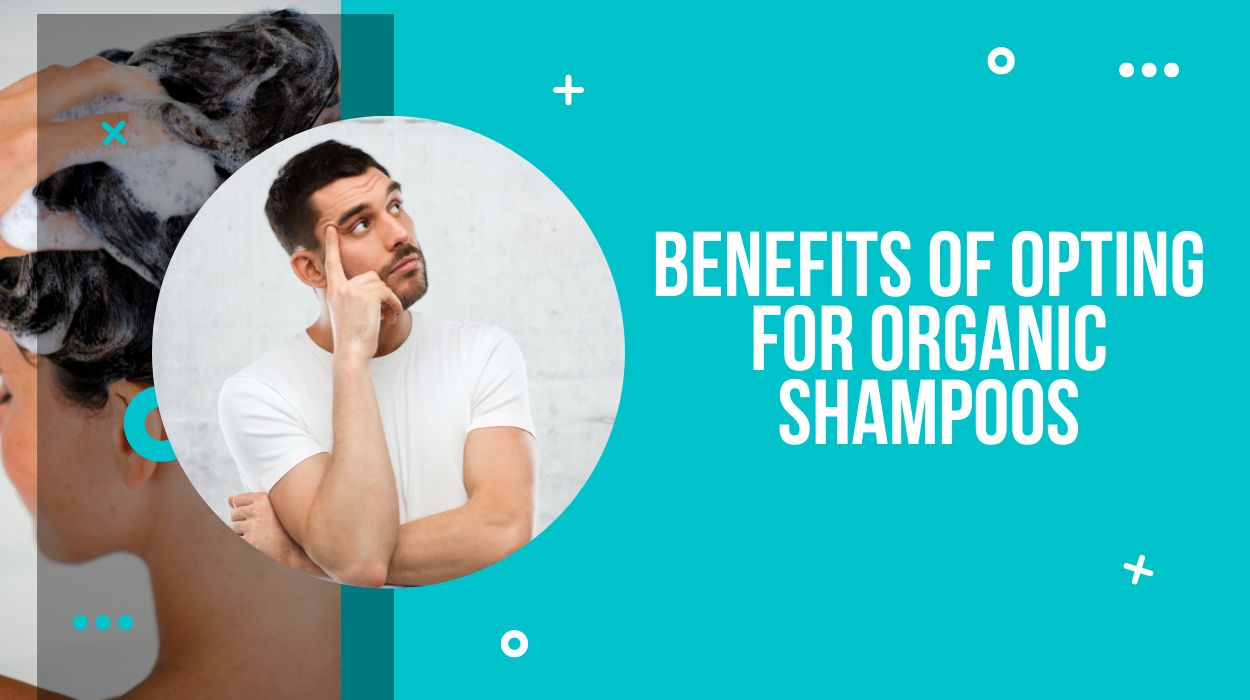By not including artificial ingredients or silicones among their components, these shampoos could help us repair the damage caused by chemicals and give us extra shine and strength.
Today, many people choose to make and try organic shampoos above alternatives found in stores and supermarkets, as they want to check the contributions of their ingredients – 100% natural.
As a result, we want to introduce you to the recipes for some organic shampoos. To prepare them, we will use herbs and some natural oils that benefit the scalp and the structure of the whole mane. Here we go!
5 benefits of organic shampoos
It is believed that organic shampoos would allow hair to rest from conventional care and beauty products, making them more effective when retaken. In addition, as mentioned above, they would give the hair extra nutrition, which would translate into strength, shine, and growth.
Additionally, some consider that shampoos of this type would help take care of the most sensitive scalp during season changes or in the face of switching from a place with more lime to one with less lime.
Prevent fall and dryness
Herbal extracts contain substances that would combat fall and some other problems, such as dryness. It should be noted that these benefits would be obtained in the long term, as natural products tend to have a later reaction period.
Fight dandruff
Antimicrobial compounds in organic champagne plants and essential oils would fight against the proliferation of dandruff-causing fungi. In addition, thanks to its properties, they would cleanse the scalp and regulate its pH to avoid unsightly flaking.
Provide softness and shine
Like other hair products, these alternatives would be good options to remove impurities and get extra softness and shine. On the other hand, depending on the ingredients they contained, they would reduce dryness or control excess fat production.
Counteract chemical damage
Organic shampoos would help revitalize hair damaged by dye chemicals and other products commonly used to fix hair, such as lacquers, gels, jellies, and keratin. Its antioxidant components would stimulate cellular activity and hair follicles.
They are eco-friendly
One of the things we must not forget is that these products are totally ecological and do not cause damage to the environment. As they are made with 100% biodegradable agents, they do not promote contamination. On the other hand, they can be packaged in recycled materials, such as plastic bottles or glass jars.
How to make organic shampoos at home?
Organic shampoos are often found in herbal stores and different markets. However, for those who prefer to make them at home, below we share 2 interesting recipes.
Saponary and Orange Protein Shampoo
The combination we propose in this recipe is recommended for those who want to stimulate hair growth and combat excess fat production. Its ingredients would act as a capillary astringent, ideal for regulating oil production and removing excess dirt.
ingredients
- 2 cups saponaria infusion ( Saponaria officinalis) (500 ml).
- 2 tablespoons of rosemary water (20 ml).
- 2 egg yolks.
How to prepare it?
- We prepare the Saponaria infusion, let it rest, and finally mix it with the rosemary water and the two whipped buds.
- We use the mixture during the usual rinse and store it in the refrigerator.
Chamomile and saddle shampoo
This recipe is recommended for dry or mixed hair. According to the National Library of Medicine data, the arginine content of chamomile would stimulate hair growth, while the other components would hydrate it.
ingredients
- 2 1/2 tablespoons saponary root (25 g).
- 2 1/2 tablespoons dried chamomile flowers (25 g).
- 1 cup hot water (250 ml).
- 20 drops of natural sandal oil.
How to prepare it?
- First, we place the Saponaria root and dried chamomile flowers in a container of boiling water.
- Then we leave in infusion all night and, the next day, strain the liquid and add the sandal oil.
- We use the shampoo in the usual rinse.
Natural shampoos: yes or no?
There are many advantages of opting for these natural alternatives. Of course, these recipes should be tested with caution as natural ingredients can also generate allergic reactions.
In the presence of redness, itching, or discomfort, discontinue the use of natural shampoo and visit your dermatologist to confirm that you do not have an allergy to any component.


